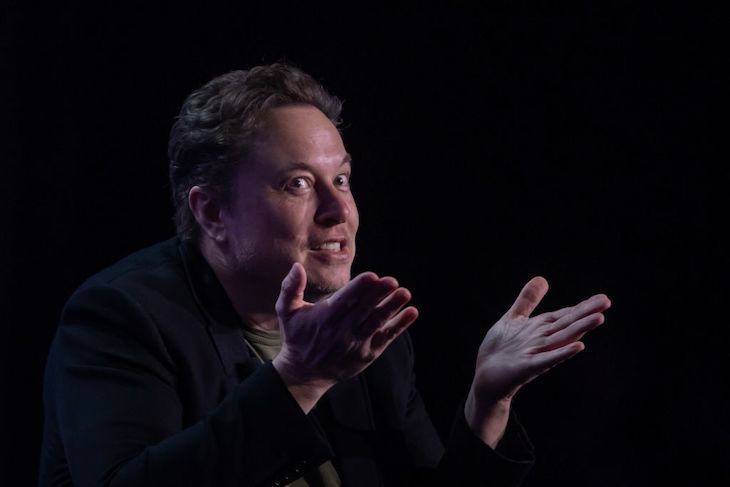It’s hard to keep track of Elon Musk. The X/Twitter boss has been busy taunting ‘TwoTierKeir’ Starmer over his handling of the UK riots, asking ‘What the hell is going on?’ in Britain. Musk has also launched legal action against a group of advertisers and major companies – including food giants Unilever and Mars – accusing them of unlawfully agreeing to ‘boycott’ X. ‘It is war,’ Musk said.
Musk’s bomb throwing delights his fans, but this legal action is a mistake
Although Musk’s bomb throwing delights his fans, this legal action seems like a mistake. The billionaire is a passionate advocate for free speech and must know that, even if – as seems unlikely – he wins this case, he can’t force anyone to advertise on X. So what is Musk trying to achieve?
Musk’s platform is claiming the loss of billions of dollars in advertising revenue. Linda Yaccarino, CEO of X Corp., has tried to frame this as another free speech issue: ‘People are hurt when the marketplace of ideas is constricted. No small group of people should monopolise what gets monetised.’
This sounds like nonsense. Any decision to withdraw advertising on grounds of Twitter’s content would be robustly defended as a First Amendment right. Bill Baer, a former assistant attorney general, has been quoted as saying ‘a politically motivated boycott is not an antitrust violation. It is protected speech under our First Amendment.’
From a British perspective, this outlandish case comes at a time when Musk’s aggressive belief in freedom of speech and the responsibilities of social media platforms are coming under renewed scrutiny. The violent disorder which has erupted since the tragic killing of three young girls in Southport on 29 July has been sustained and encouraged in part through content on X. Musk himself has been quick to get involved, tweeting that ‘civil war is inevitable’.
Free speech is a thorny issue and it often produces outcomes which its proponents find difficult and unpleasant. That is in its nature: the importance of freedom of speech is not in allowing the propagation of views with which you agree, because that would be easy, but of views which you dislike and oppose. In one sense, Musk, albeit with distasteful glee, is pushing those boundaries to emphasise the necessity of being allowed to say what you think.
His legal case against Unilever and Mars makes this a more difficult argument to sustain, because from one perspective it looks very like the attitude of one who supports free speech when it is in his favour, but not when it works against his interests. It is not difficult to understand that commercial entities should be entitled to advertise where they wish, and decline to advertise in places which do not suit them. Musk, a zealous champion of freedom of expression whose platform lost billions of dollars in advertising revenue, is beginning to look like the subject of the perennial meme entitled: ‘Well, well, well, if it isn’t the consequences of my own actions’.







Comments